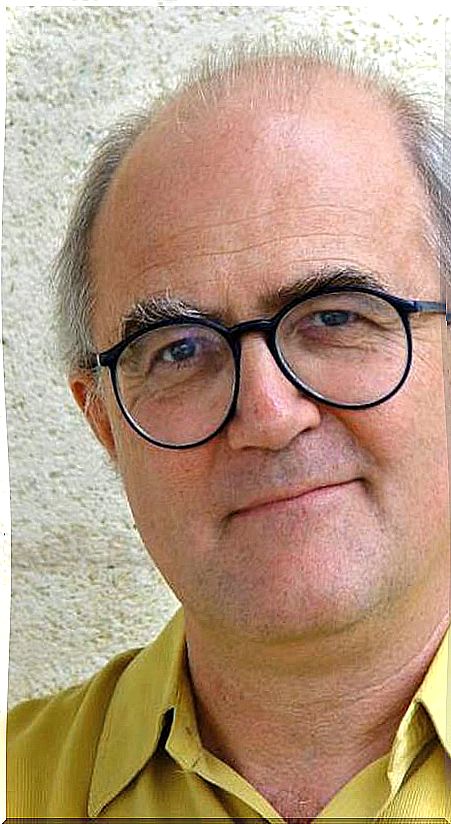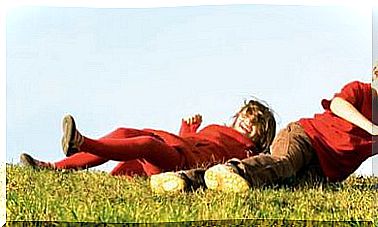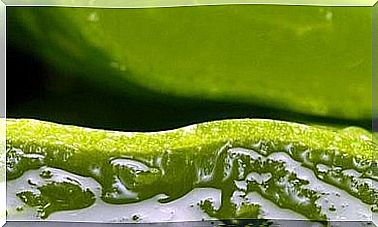“Meditation Helps You Navigate Life”
This Buddhist expert shies away from simplifications, but you can tell he’s used to teaching meditation. Hearing him speak, it seems much easier to understand what meditation is and how it can help us improve our lives and that of others.

At the age of 18, when he finished high school, Stephen Batchelor began a life-changing backpacking trip to India. There he met the Dalai Lama and, for three years, was part of his monastic community. Later he married a French Buddhist nun whom he met in Korea, Martine, and settled in France.
For 30 years he has taught meditation at the Gaia House Center in England and offers seminars and retreats around the world. He has recently published After Buddhism: Rethinking the dharma for a secular world (Kairós 2017), a philosophical, contemplative and ethical vision of Buddhism appropriate to our time.
Stephen Batchelor, Buddhist Meditation Expert
Meditation is part of something bigger for this British Buddhist passionate. It is an integral part of a path, the Noble Eightfold Path, that leads to nirvana, to the end of suffering.
This path is a way of life in Buddhism, a way of interacting with life as a whole, and it is part of ethical behavior.
– What would you recommend to people who have never meditated and are attracted to this practice?
—There are many types of meditation because there are many types of people. There are those who will prefer to recite mantras, do tai chi or yoga… If your mind tends to be scattered, you may need something to focus on, such as a mantra or an object.
You have to ask yourself first why you start to meditate … If your answer is because it makes you more concentrated and calm, it is that for you being concentrated and calm is important. And if you do that by reciting mantras, then go ahead, fine. But if one day it doesn’t work for you, try something else.
—In your book, you explain that when we stop being reactive to what happens to us, our lives are transformed. Now, how can we stop being reactive if we are sentient beings of flesh and blood?
“You can’t stop being reactive.” It is part of our neurobiological conditioning. Our body simply reacts to stimuli. But you can stop identifying with that reaction …
You can be more sensitive about how you feel about the experiences that come your way. Be much more aware of the sensation that it produces in you and see that you do not react so much to the experience as to the sensation that that experience produces.
“You can’t stop being reactive. But you can stop identifying with your reaction.”
“It doesn’t seem easy …
” The point is, the more aware you are of that, the less you fuel those reactions, the less gasoline you put on the fire, and the reactivity is softening.
Now, I have a hard time imagining a human being who does not react on some occasions. The problem is not so much the reactivity itself, but how you respond to different stimuli. If you are being aware of your reactions, you are no longer being reactive.
“Why is it said that to meditate you don’t have to have expectations …?”
—If you have an expectation, it is that you already have an image of a perfect state to which you aspire, such as enlightenment and everything you think of that state in which you are not yet.
You do not have to obsess over that goal to the detriment of staying here and now, dealing with what is happening right now. The question is whether meditation is allowing you to feel better in this moment, here and now.
—How can the Eightfold Path be applied in meditation?
—The Eightfold Path describes an integral, complete way of life. You can be very good at meditating, but not have too many skills when it comes to communicating or finding sustenance for your life, and you have to think that your practice, in its entirety, is to attend to each of these areas.
Imagine a wheel that has its axle in the center and its spokes. Meditation is the axis, what is in the middle, and the spokes come from there: they are the eight paths, and it is what helps you navigate in life.
These eight branches allude to developing a complete or straight vision, free from reactivity, a complete thought, a complete word, a complete action, a complete subsistence, a complete effort, a complete attention and a complete concentration.
“I understand …” “
If your meditation is not integrated with all these facets of life, it is simply a technique. It can help you solve a psychological or health problem, which is not bad, but it is not something integrated into a way of life, in a way.
“Is it about being as ethical as possible in all facets of your life?”
“Yes, but you are human and you will make mistakes from time to time.” It is the process by which you try to become the type of person you aspire to be, and that is part of all religions. Meditation gives us tools and helps us to carry out this project, but from here until we achieve perfection, it is something else.
There is a mathematical concept, asymptotic, in which a curve goes down in a graph and approaches an axis located at the bottom, but never touches it. The same thing happens with meditation. It is part of an ethical path and brings us closer to perfection, but we are human.
“If your meditation is not integrated with all these facets of life, it is simply a technique.”
– Buddhism is a philosophy that seeks to improve the person?
-Yes. Going back to the reactivity we talked about before, being less reactive allows us to respond in a calmer, more friendly way in many circumstances.
Reactivity is what prevents us from entering the Eightfold Path and having that complete vision that we talked about before. Reactivity is repetitive, spinning the same thing over and over again.
Being less reactive frees you to be able to shape a creative vision of the world and your own life, and have a direction.
—In your book you offer an analysis of the oldest canonical texts of Buddhism. What aspect of Buddha has attracted your attention the most?
“His humanity, in all aspects of life.” In what has been written you can see the glimpses of a person who lived between 480-400 BC, who was a contemporary of Socrates and who is as human as oneself.
Buddha is constantly interacting with others. You live in a real world where you have to deal with political and economic figures and people who create problems and conflicts for you, and you also have to establish your community. But you have a person who is both practicing and articulating a philosophical vision. And you clearly have someone who is living the contemplative life in a world like ours, not in a distant paradise.
“Buddha believed in transcendence?”
-Yes and no. He did not believe in a transcendent reality such as God. He did not believe that behind the appearances of this world there was a higher reality, but he did think that anyone can transcend his greed, his hatred and his confusion. It alluded to how we can transcend those things that keep us in suffering and confusion.
Buddha understands consciousness as something that emerges from the physical world. He did not speak of a soul or a self that is permanent.









